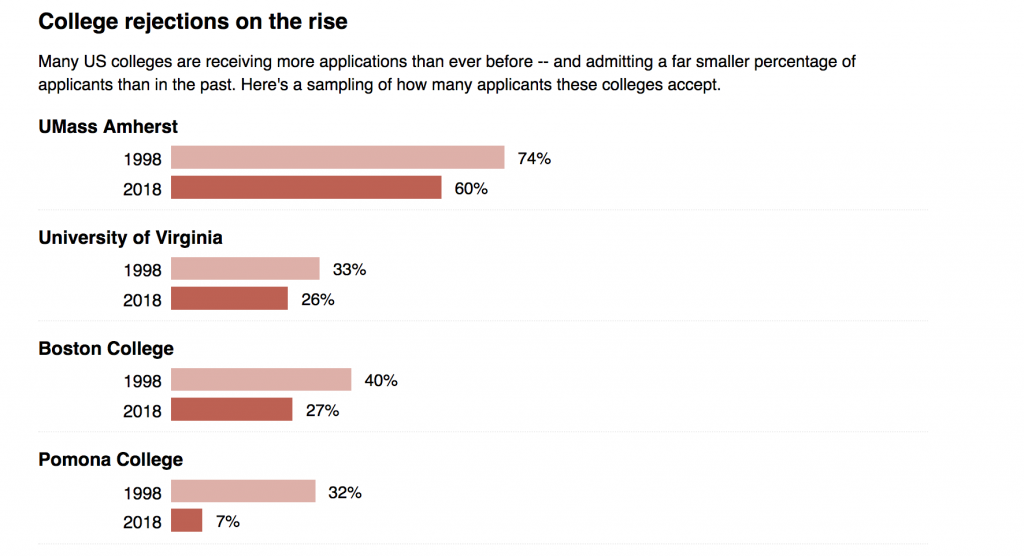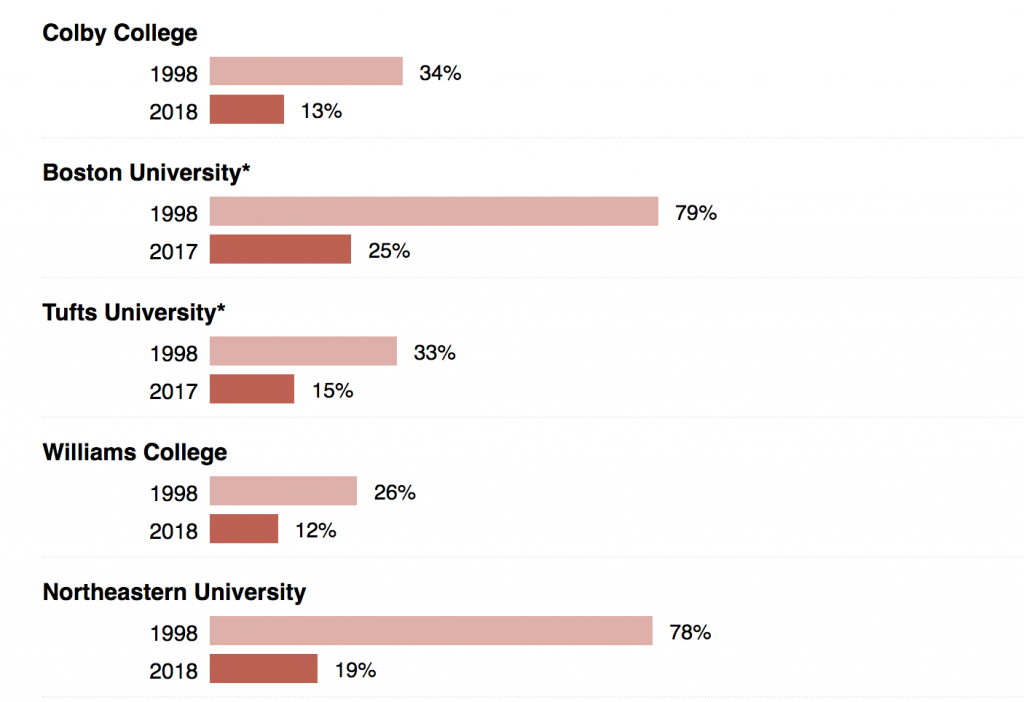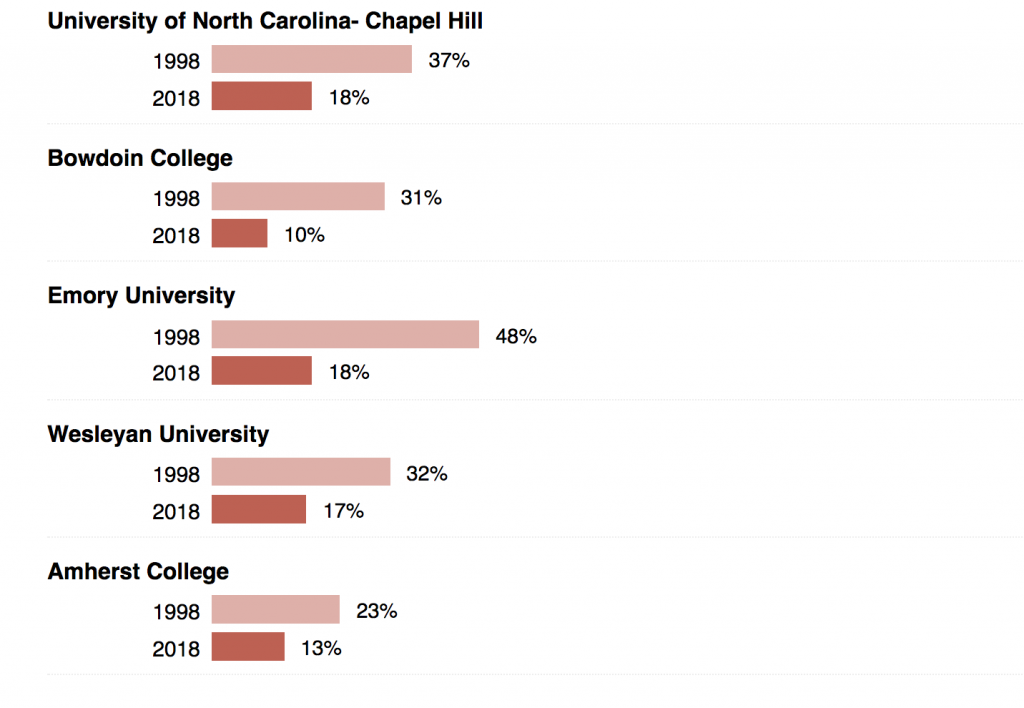How the Harvard Case Highlights What All College Applicants Need to Know
Each summer, Harvard’s Admissions Office profiles a handful of previous applicants in a “casebook” and distributes it to employees. The book is meant to teach staffers how to evaluate candidates. For each applicant, the document details the bullet-pointed factors that rendered the applicant “appealing” and the traits that gave Harvard “pause.” It also provides the outcome for each student.
A recent Crimson article shines a light on some of what came from the casework exploration, none of which comes as much of a surprise to someone in my role. I want to share some of what the Crimson article highlights, but also point out that these findings are not solely applicable to Harvard applicants. Any student applying to a selective college or university should consider these findings because they hold true across many schools.
A clear and impressive academic performance and talent:
“But stories of successful applicants prove a common truth: Harvard admissions officers are looking for academic superstars who have overcome adversity in their personal lives* and can offer a clear vision of what they would accomplish in Cambridge.
Smarts reigned supreme. In nine of the 11 cases, admissions officers pointed to strong academic performance as a compelling reason for admission. The word “bright” appears eight times in the document.”
*Overcoming adversity plays out in so many different ways. Many applicants have not experienced hardships related to their living conditions, family finances, etc.—but no one’s life is perfect. Everyone has experienced personal failure and moments of weakness and vulnerability. A student’s willingness to dig deep and have the confidence to present these moments is one way to overcome the “hardship” gap if they have not navigated a more traditional hardship.
An extracurricular “niche” (which could be related to the academic narrative):
“While a strong overall candidate, Evelyn [Satmar]’s credentials are not unusual in our applicant pool,” the document reads.
Admissions officers also took note of activities outside the classroom. Reviewers mentioned that at least three candidates failed to find an “extracurricular niche” in high school.
“While the package is appealing, the case lacks the ‘hook’ provided by a special academic or extracurricular talent,” officers wrote of Mandisi.”
And likeability (charisma and lack of ego!):
“Grace was a “strong student” in high school, but nothing exceptional. One reviewer noted her test scores “suggest she won’t be a top engineering student at Harvard” — and predicted she “will have to work hard here.”
However…. “Grace’s teachers, guidance counselor, and alumni interviewer describe her in terms we rarely read,” the document states. “A true ‘1 personal’ — one of the few we see each year.”
And what about “pause” factors reasons—reasons to deny an application. There are plenty of those, but here are a few that are overwhelmingly true at all schools, not just Harvard:
“The document lists “pause factors” for each candidate. These more problematic traits — including less impressive grades, uninspiring extracurriculars, and excessive braggadocio — spurred lengthy deliberations in the Admissions Office, waitlist placements, and calls to a plethora of teachers and counselors.
For other applicants, admissions officers raised more personal concerns — many related to ego.”
Two candidates’ pause factors included “arrogance.” One was placed on the waitlist and never accepted; the other admitted to Harvard only “after many hours of debate.
Admissions officers particularly pondered whether high schoolers’ hubris would hurt them at Harvard — wondering whether applicants could successfully trade standout status for relative anonymity among hundreds of star students.
“What will his transition be like — from big fish in small pond to Harvard — and how will Sergei interact with roommates, classmates, and administrators?” one reviewer wrote.”
You do not need to be applying to Harvard to reap the benefits of these takeaways! We’ve been encouraging applicants to consider these things for as long as we’ve been doing this:
-Perform well in school and on standardized tests. This is the #1 factor. If you don’t have this…the rest is going to matter very little at top schools (unless you are a recruited athlete).
-Develop an academic narrative; even if you have a few interests, dive into them and go above and beyond in pursuing them. Just “doing school” is not very compelling. Get out there and do something!
-Find an extracurricular niche. It might be what you do to go above and beyond regarding your academic interests, or it might be something else completely. Either way, the most interesting candidates have a life outside of school and their excellent grades and test scores. Bonus if this niche is outside of the norm (think deck hockey or urban gardening instead of Model UN or piano).
-Lose the ego. You might be #1 in your class, have tons of leadership roles, and basically be #thebest, but that will all change in college. You are going to be the norm and you will need to adjust to that very quickly. Show some humility and foresight. Arrogance is the absolute most cringe-worthy part of so many college applications! Remove all traces of it (you might need someone to help with this).
Read the full Crimson article here.
*Stay in the know! Subscribe for news, tips, and advice*







